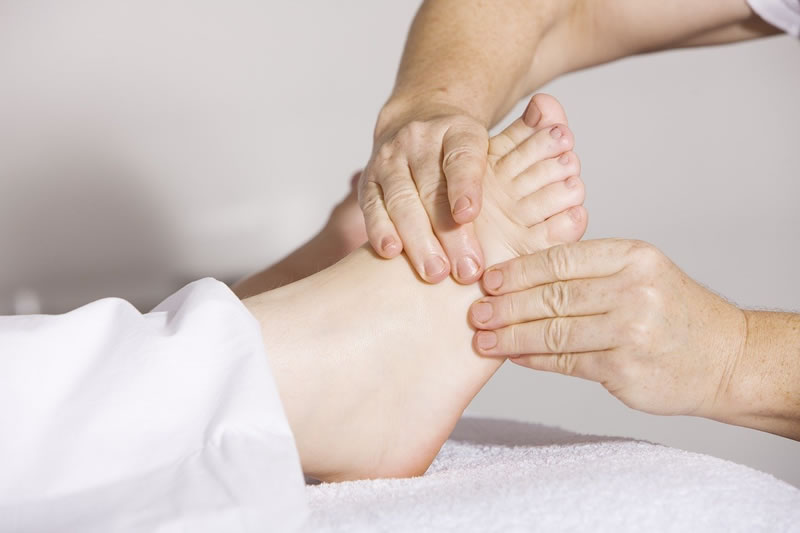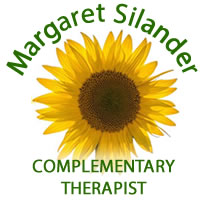Reflexology
REFLEXOLOGY is the complementary therapy of using the thumbs and fingers to stimulate reflex points on the feet or hands to promote healing in the body.
When mankind went barefoot, walking on sand or uneven ground, they were unknowingly stimulating the reflex points of the body. Nervous people pace back and forth, rub hands together, and bite their nails, and some even handle worry beads.
By doing this, they unknowingly relieve their tensions by working on the reflex points. The surface of the skin, apart from being a receiver of external stimulus, also holds mirror images of the internal body organs. These images are reflected onto the soles, palms of the hands and ears and are called reflex areas or points.
The principle of Reflexology is that there are reflex areas in the feet and hands which correspond to all of the glands, organs and parts of the body.
Reflexology is a unique method of using the thumb and fingers on these reflex areas in order to support nature in maintaining balance in the body, as far as may be achieved for each individual. It does this by stimulating the reflex areas which may help to relieve stress and tension, improve the blood supply to all areas of the body and promote the correct functioning of nerve impulses.
Reflexology aims to treat the imbalances of each individual and to alleviate and improve symptoms. It does not however diagnose a specific medical proble

Reflexology is not new; the earliest recording of a therapy in the form that Reflexology is known today is found in tomb drawing of the Egyptians dated 2330BC in which a person is shown holding the foot of another person and applying massage to the sole of the foot.
Ancient texts, illustrations and artefacts have shown that the early Chinese, Japanese, Indians and Russians also worked on the feet to promote good health.
Many conditions may benefit from Reflexology including:
Arthritis
Digestive disorders
Respiratory problems
Hormonal imbalances
Migraine
Stress related problems
Sleep problems (insomnia)
Other benefits include:
Relaxation
Improved circulation
Support of the immune system
A sense of wellbeing
Elimination of toxins from the body.
In the early 1900’s Dr William Fitzgerald, whilst experimenting with pain relief established that pressure applied to certain parts of the body could have an anaesthetic effect on other parts away from the site of the pressure. Dr Fitzgerald was the first to chart longitudinal zones of the body, calling his work, “Zone Therapy”.
In 1918 Dr Joe Shelby Riley and his wife Elizabeth, published the first reflex zone map of the feet, in their book “Zone Therapy Simplified”. Dr Riley also invented the “Hooking” technique and recorded one of the first theories of reflex points and zones of the ear.
An assistant of Dr Riley’s, E Ingham, developed alternating pressure techniques in the 1930s. This became known as Reflexology. She produced detailed maps of the reflex points on the feet and toured America lecturing and teaching. In 1938 she published “Stories the Feet Can Tell” and in 1963 “Stories the Feet Have Told”.
After training with E Ingham, a German practitioner called Hanne Marquardt was credited with the concept of transverse zones, which divide the body into three areas. She went on to train large numbers of medically qualified people as Reflexologists.
Another student of E Ingham’s, Doreen Bayley, brought Reflexology to Britain in the 1960’s and set up the Bayley School of Reflexology.
If you come with a specific problem, then an initial course of at least four treatments at weekly intervals is recommended

COST: £35 for a one hour treatment
£120 for a course of four treatments
Card, cash, or bank transfer
Reflexology is helpful for many Women’s Health problems, including menstrual problems, infertility, pregnancy and labour and difficulties in the menopause. (A link to my womens health is here)
Vouchers always available for all treatments
Nothing we can do can change the past, but everything we do changes the future.’ Ashleigh Brilliant
Reflexology for Ashford, Kent & Beyond
Get in Touch
Please get in touch using our contact form & email or by phone.
Telephone: 01233 720897
Mobile: 07703 270968
Email: margaret@margaretsilander.co.uk
